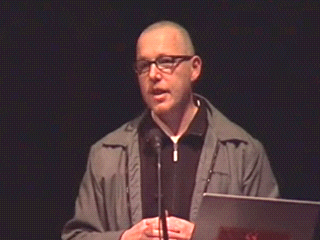Media Files
Abstract
“Nine(9)” can be said to have two main tragectories. Primarily it is software built by and for those of us locked out of the narrowly engineered subjectivity of mainstream software. It is software which asks itself what kind of currents, what kind of machine, numerical, social and other dynamics it feeds in and out of, and what others it can help bring into being?
The second vector is related to this. It is software that is directly born, changed and developed as the result of an ongoing sociability between users and programmers in which demands are made on the practices of coding that exceed their easy fit into standardised social relations.
These two threads interweave in most cases. It is how they do so, how their multiple elements are brought into communication and influence that determines their level of success.
“Nine(9)” can most usefully be understood to work in these terms. It is a socio-technical pact between users of certain forms of license, language, cultures and environment. The various forms of its freeness or openess are being developed as part of the various rhythms of the life of this software; its production and critical engagement with the process of permission. In addition to this, “Nine(9)” requires new social machines to spawn its codes, to diffuse and manage its development and implementation.
Artists / Authors
- Graham Harwood , Artist, London, Great Britain
Date(s)
- January 24, 2004
Organizer
Center for Art and Media Karlsruhe (ZKM)
Location
Center for Art and Media Karlsruhe, Lorenzstrasse 19, 76135 Karlsruhe, Germany
Partners / Sponsors
Goethe-Institute and the German Ministry of Research and Education BMBF.
Submission
, Apr 21, 2004
Category
- Symposium
Keywords
- Topics:
- media theory |
- interactivity
- Formats:
- software



